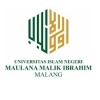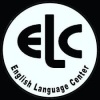The Effect of Gamification Method on vocabulary Achievement of Junior High School Students
Abstract
This research project explores the use of gamification techniques as a teaching tool, particularly with reference to the platform Bamboozle. Gamification techniques are not widely used in Indonesia, especially in rural and suburban areas with little access to educational resources. The purpose of this research is to assess how well gamification might improve students' language skills and provide useful information for researchers and educators. The research involved 25 participants who volunteered to contribute to the study. Quantitative research methods were use, specifically pre- and post-experimental research, utilizing tests consisting of 15 to 20 multiple-choice questions and 5 essay questions. The results indicated a significant improvement in the participants' vocabulary achievements following the implementation of the Bamboozle-based treatment. The treatment was more successful than the researchers were expecting, proving that gamification techniques especially those utilizing Bamboozle are effective at improving learning outcomes. This study emphasizes how gamification might help with educational difficulties, especially in resource-poor areas. It also emphasizes how crucial it is to use cutting-edge teaching techniques in order to enhance students' educational experiences and results. Future research could examine how gamification affects education in the long run and how it can be used in a variety of learning settings.
Full Text:
PDFReferences
Abbas, M. F. F., & Fathira, V. (2020). Implementation of Android Application To Solve the Students Pronunciation of Ending. English Review: Journal of English Education, 8(2), 101. https://doi.org/10.25134/erjee.v8i2.2648 access date: 25 December 2023
Agustina, E., Andanty, F. D., Setiawan, R., Susanto, F., Soelistijowati, J. O. ., & Putri, N. T. (2024). Peranan Game untuk Pengajaran Kosakata Bahasa Inggris: Sebuah Penguatan Literasi bagi Guru Sekolah Dasar. Jurnal Peradaban Masyarakat, 4(1), 6–15. https://doi.org/10.55182/jpm.v4i1.382 access date: 17 May 2024
Bakhsh, S. A. (2016). Using Games as a Tool in Teaching Vocabulary to Young Learners. English Language Teaching, 9(7), 120. https://doi.org/10.5539/elt.v9n7p120 access date: 25 December 2023
Bissonette, J. (2021). Implementing Gamification for 5th and 6th Grade at the Alborada School. https://digital.wpi.edu/downloads/t435gg860
Byun, J., & Joung, E. (2018). Digital game‐based learning for K–12 mathematics education: A meta‐analysis. School Science and Mathematics, 118(3–4), 113–126. https://doi.org/10.1111/ssm.12271 access date: 25 December 2023
Dichev, C., & Dicheva, D. (2017). Gamifying education: what is known, what is believed and what remains uncertain : a critical review. International Journal of Educational Technology in Higher Education. https://doi.org/10.1186/s41239-017-0042-5 access date: 25 December 2023
Gilakjani, A. P. (2017). A review of the literature on the integration of technology into the learning and teaching of English language skills. International Journal of English Linguistics, 7(5), pp. 95-106. http://doi.org/10.5539/ijel.v7n5p95 access date: 25 December 2023
Hartt, M., & Hosseini, H. (19 2019) From the players point of view, in: A. James & C. Nerantzi (Eds) The Power of Play in Higher Education: Creativity in Tertiary Learning, pp. 263–272 (Cham, Switzerland: Palgrave Macmillan).
Hamdani, M. S., . M., & Wardani, K. W. (2019). Penerapan Model Pembelajaran Team Games Tournamen (TGT) pada Pembelajaran Tematik Terpadu Kelas 5 untuk Peningkatan Keterampilan Kolaborasi. Jurnal Ilmiah Sekolah Dasar, 3(4), 440. https://doi.org/10.23887/jisd.v3i4.21778 access date: 25 December 2023
Karagiorgas, D. N., & Niemann, S. (2017). Gamification and Game-Based Learning. Journal of Educational Technology Systems, 45(4), 499–519. https://doi.org/10.1177/0047239516665105 access date: 25 December 2023
Kızkapan, O.,& Bektaş, O. (2017). The Effect of Project Based Learning on Seventh Grade Students’ Academic Achievement. International Journal of Instruction, 10(1),37- 54.
Krisbiantoro, B. (2020). The effectiveness of gamification to enhance students� mastery on tenses viewed from students� creativity. Journal of Advanced Multidisciplinary Research, 1(2), 73. https://doi.org/10.30659/jamr.1.2.73-97 access date: 4/01/2023
Liu, Z. Y., Shaikh, Z. A., & Gazizova, F. (2020). Using the concept of game-based learning in education. International Journal of Emerging Technologies in Learning, 15(14), 53–64. https://doi.org/10.3991/ijet.v15i14.14675 access date: 25 December 2023
Nabhan, S. (2019). Bringing multiliteracies into process writing approach in ELT classroom: Implementation and reflection. EduLite: Journal of English Education, Literature and Culture, 4(2), 156. https://doi.org/10.30659/e.4.2.156-170 access date: 17 May 2024
Nurbani, A. N. (2020). Adapting Chess Game into Physical Activity in Teaching Speaking for EFL Learners. Jet Adi Buana, 5(02), 163–174. https://doi.org/10.36456/jet.v5.n02.2020.2586 access date: 17 May 2024
Pratama, L. D., & Setyaningrum, W. (2018). Game-Based Learning: The effects on student cognitive and affective aspects. Journal of Physics: Conference Series, 1097(1). https://doi.org/10.1088/1742-6596/1097/1/012123 access date: 25 December 2023
Priyanti, N.; Santosa, M.; Dewi, K. (2019). Effect of Quizizz towards the eleventh-grade English students’ reading comprehension in mobile learning context. Lang. Educ. J. Undiksha 2, 71–80.
Quraishi, N. H., Asif, M., Sheeraz, M., & Amer, K. (2020). Novel Coronavirus (COVID-19) and its impact on Education at Tertiary Level: Challenges and Solutions for Pakistani Universities. Journal of Education & Social Sciences, 8 (2), 40-54.
Review, H., Jamshoro, T., & Jamshoro, T. (2023). The Impact of Gamification Tools on Reading Comprehension Skills : A Comparative Study of Kahoot ! Quzizz and Baamboozle of English Language Learners * Corresponding Author. 7(4).
Ridha, N., & Fithriani, R. (2023). Efl Pre-Service Teachers Perception of Technology Integration in English Language Instruction. Research and Development Journal of Education, 9(1), 431. https://doi.org/10.30998/rdje.v9i1.16933 access date: 25 December 2023
Rusmiyanto, R., Huriati, N., Fitriani, N., Tyas, N. K., Rofi’i, A., & Sari, M. N. (2023). The Role of Artificial Intelligence (AI) In Developing English Language Learner's Communication Skills. Journal on Education, 6(1), 750-757.
Saud, S., Aeni, N., & Azizah, L. (2022). Leveraging Bamboozles and Quizziz to Engage EFL Students in Online Classes. International Journal of Language Education, 6(2), 169–182. https://doi.org/10.26858/ijole.v6i2.24301 access date: 25 December 2023
Situmorang, K., & Pramusita, S. M. (2023). Gamification-based Apps in Teaching and Learning English in Indonesia-A Systematic Literature Review. 6(2), 215–226.
Susanto, F., Rahayu, E. M., Hidayat, R., Hertiki, & Nungki, A. (2021). Pemanfaatan Moda Aplikasi Padlet untuk Keterampilan Membaca dan Menulis bagi Guru-Guru SMA / K Se-Kabupaten Sidoarjo. Kanigara: Jurnal Pengabdia Kepada Masyarakat, I(2), 84–95.
Setiawan, R., Syahria, N., Andanty, F. D., & Nabhan, S. (2022). Pengembangan Modul Ajar Kurikulum Merdeka Mata Pelajaran Bahasa Inggris Smk Kota Surabaya. Jurnal Gramaswara, 2(2), 49–62. https://doi.org/10.21776/ub.gramaswara.2022.002.02.05 access date: 17 May 2024
Thi, P., & Le, T. (n.d.). Implementing Digital Tools In Teaching. 1–20.
Trajkovik, V., Malinovski, T., Vasileva-Stojanovska, T., & Vasileva, M. (2018). Traditional games in elementary school: Relationships of student’s personality traits, motivation, and experience with learning outcomes. PloS One, 13(2), 172–202. https://doi.org/10.1371/journal.pone.0202172. access date: 25 December 2023.
Van Vu, D., & Peters, E. (2021). Vocabulary in english language learning, teaching, and testing in Vietnam: A review. Education Sciences, 11(9). https://doi.org/10.3390/educsci11090563 access date: 4/01/2023
DOI: https://doi.org/10.18860/jeasp.v7i2.27163
Refbacks
- There are currently no refbacks.

This work is licensed under a Creative Commons Attribution-ShareAlike 4.0 International License.







Editorial Office:
Pusat Pengembangan Bahasa
Program Khusus Pengembangan Bahasa Inggris (PKPBI)
Universitas Islam Negeri Maulana Malik Ibrahim Malang
Gedung C lantai 1
Jl. Gajayana No 50 Kota Malang, Jawa Timur, Indonesia
Kode Pos 65144, Telp/Fax : (0341) 570872
Email: jeasp@uin-malang.ac.id
JEASP : Journal of English for Academic and Specific Purposes is licensed under a Creative Commons Attribution-ShareAlike 4.0 International











